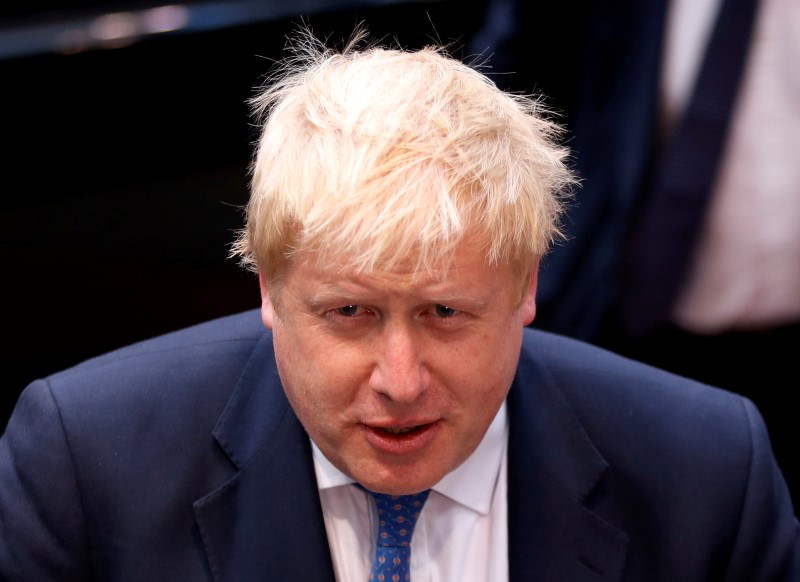Investing.com -- The British pound fell to its lowest in more than two years in early trading in Europe Wednesday as fears over a “Hard Brexit” and a possible general election exacted a higher risk premium for all sterling assets.
The Times of London reported that Boris Johnson, the favorite to win the current Conservative Party leadership contest and take over as Prime Minister, is looking to call a general election as early as next year. Opinion polls suggest an election would not give any party a clear majority. Johnson has already pledged to take Britain out of the EU in October even if that means scrapping a transitional deal that would have cushioned the blow to the U.K.’s economy.
The pound fell nearly 1% on Tuesday against the dollar and continued its decline on Wednesday. By 3:45 AM ET (0745 GMT), it was at $1.2393, having fallen below $1.24 for the first time since April 2017. Sterling was also lower against the euro, tumbling as far at 1.1047, its lowest since September 2017, before bouncing to 1.1058.
“We expect GBP can fall even further, even quicker from here, with volatility rising as it does so,” Helen Thomas, CEO of the consultancy Blonde Money in Oxford, said in a note to clients. “And all because the truth is dawning: we are headed to No Deal and we are about to get a new Prime Minister with an entirely new way of managing the process. Sure, he might fold in the end. But equally likely, he might not.”
Sterling faces another test at 4:30 AM ET (0830 GMT) with the release of data on U.K. consumer, producer and house prices.
The euro was also under some pressure after a far-from-convincing confirmation of Ursula von der Leyen as the European Commission’s new president. Von der Leyen’s nomination passed by a majority of less than 10 in the EU parliament, far less than expected. The voting numbers indicate that a large number of the centrist deputies in the parliament refused to vote for her, which may be a foretaste of difficulties in passing important legislation through a more fragmented parliament over the next five years.
Gains against the pound and euro drove the dollar index, which tracks the greenback against a basket of developed-market peers, to 97.088, its highest in a week. By 03:45 AM ET, it had retraced a fraction to 97.037
The dollar owed some of its strength to comments from San Francisco Fed president Mary Daly, who told Reuters in an interview that she wasn’t “leaning one way or the other” as regards an interest rate cut at the Federal Open Markets Committee meeting in two weeks’ time. Markets have come to see a 25-basis point cut as a done deal.
